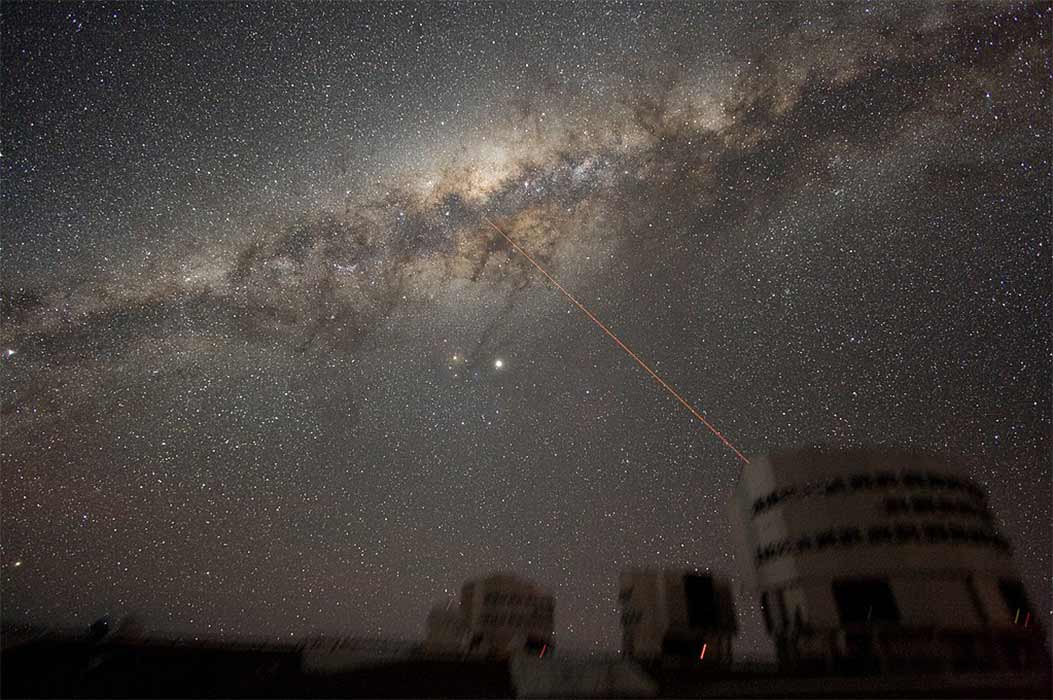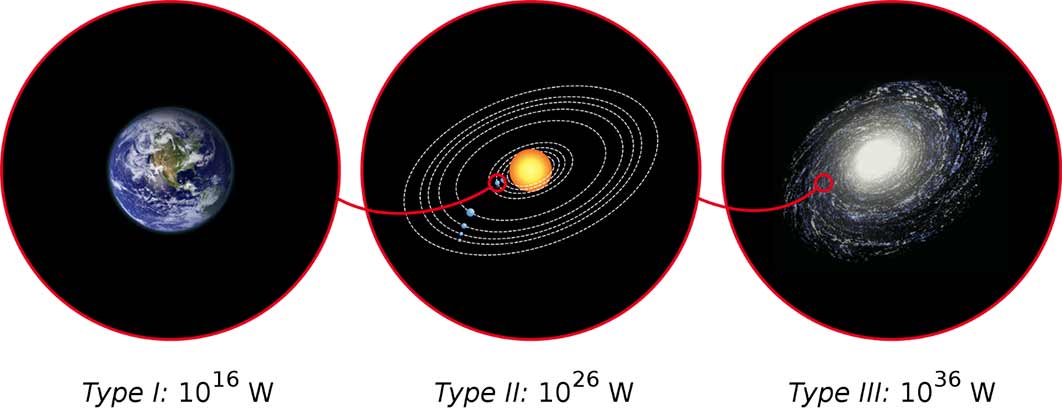
Gods Galactica, The Kardashev Scale: Mankind’s Future Destiny Prophesized
“But where is Everybody?” asks the Fermi Paradox in the 1950’s regarding intelligent civilizations in the universe. In 1964, a 32-year-old Soviet/Russian astrophysicist named Nikolai Semyonovich Kardashev, who was at the time the deputy director of the Astro Space Center of the Institute of the Russian Academy of Sciences in Moscow, was perplexed by the lack of evidence in the cosmos for technologically advanced civilizations in the universe. According to simple mathematics, assuming we live on an average planet in an average part of an average galaxy, there should be thousands of similar species living on thousands of home planets that are within sight of our telescopes.

Image of the night sky above Paranal, Chile on 21 July 2007, taken by ESO astronomer Yuri Beletsky. (Beletsky CC BY-SA 4.0)
The Fermi Paradox
Kardashev, who died in 2019, was by no means the first to ponder this question. Enrico Fermi, for instance, the Italian physicist who created the world’s first nuclear reactor, earning for himself the title ‘architect of the nuclear age’, is said to have been in conversation over lunch with Edward Teller, Herbert York and Emil Konopinski back in the summer of 1950. The intellectual powerhouse gathering of scientists had been talking about recent UFO reports and the possibility of traveling faster than the speed of light. They were all in agreement that since there are billions of stars in the Milky Way, there was a statistically high probability that many of them have planets orbiting them that were similar to Earth. Many must be much older than our sun, which would have given them plenty of time to develop intelligent life. Some of them must have by now developed interstellar travel, and must have located, or at least tried to contact, Earth at some point. The conversation moved on to different topics, as such conversations often do, until Fermi suddenly blurted out, “But where is everybody?” Since this conversation occurred, his simple question has taken on epic proportions. It has even been given an official title: the Fermi Paradox.
The Kardashev Scale
It was this question that haunted Nikolai Kardashev. Being the brilliant scientist he was, he decided to formally study the problem. By so doing, he created what is now called the Kardashev Scale. It suggests a method of describing the growth expectations of a potential civilization. He theorized that a civilization’s development depends upon, or is a product of, its use of energy and technology.
Technology is powered by energy, harnessing and employing it in ways that fuel cultural development. The greater the utilization of an energy source, the greater the development of a civilization. Kardashev originally limited his studies to one area – that of communication. But his ideas have since been expanded to include much wider, and more speculative, fields.

Soviet and Russian astrophysicist Nikolai Semenovich Kardashev. ( CC BY-SA 4.0)
To make a long story short, he developed a futuristic scale that measured how civilizations might develop and predicts methods that could result in far more advanced methods of getting around in the cosmos and, eventually, beyond. Although he limited himself to only three advanced categories, they have now been expanded to include far more hypothetical civilizations.





